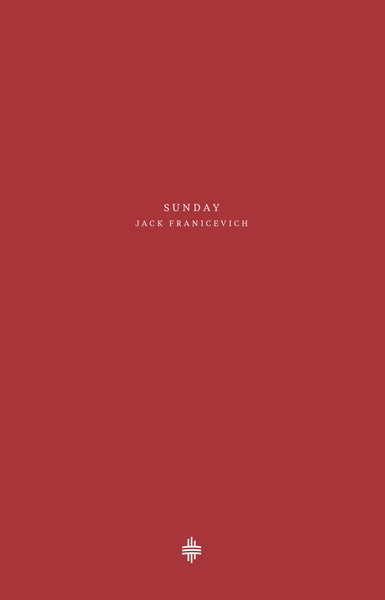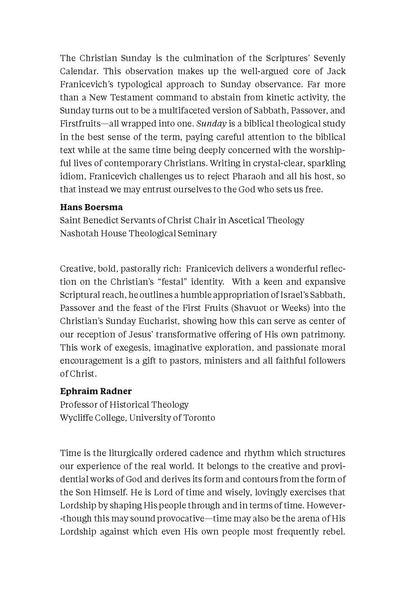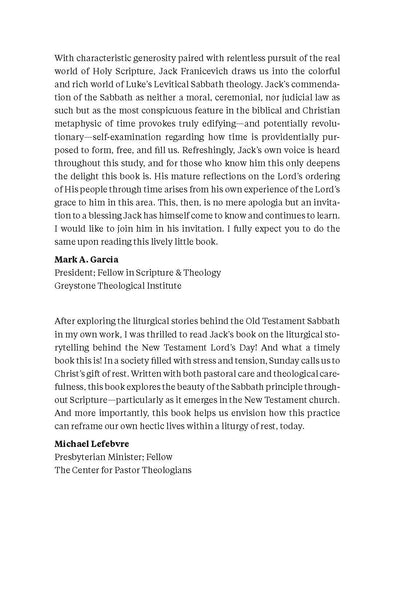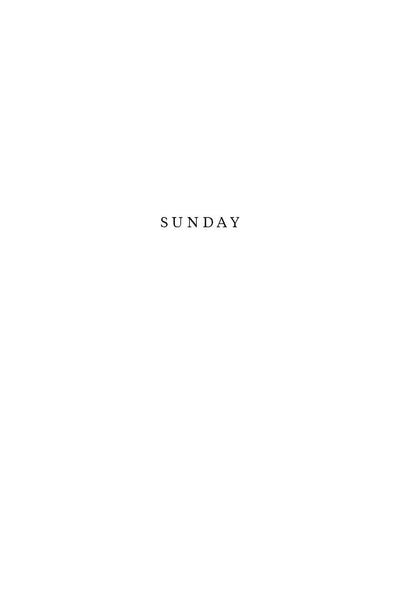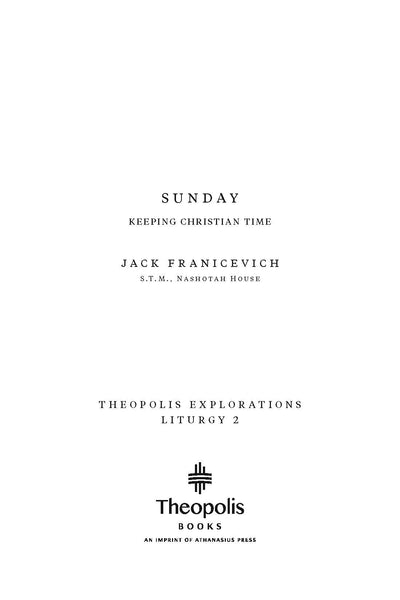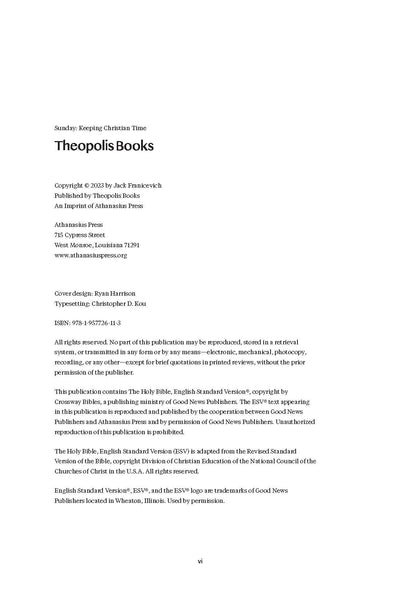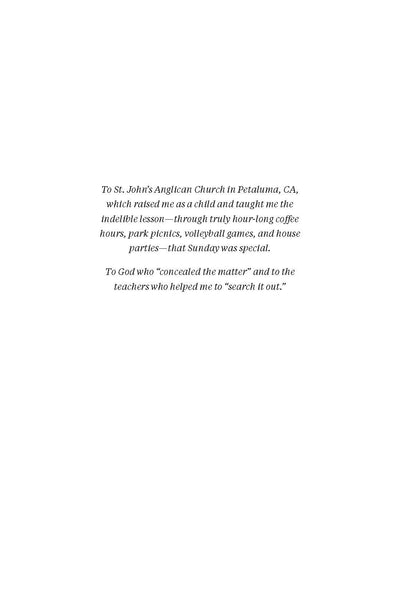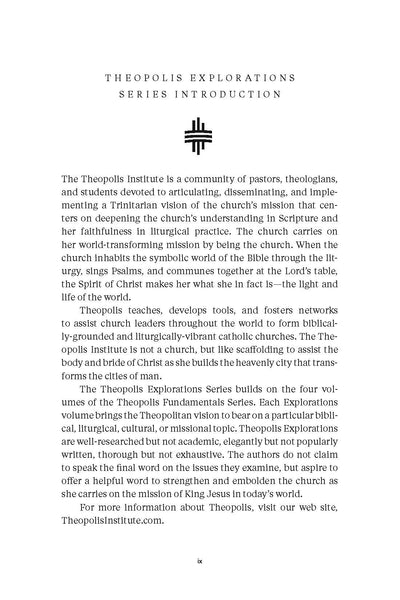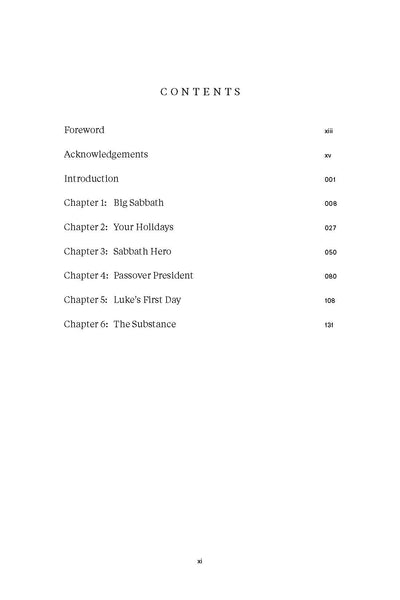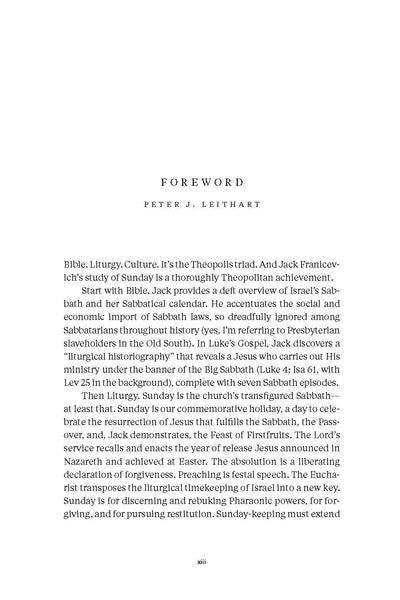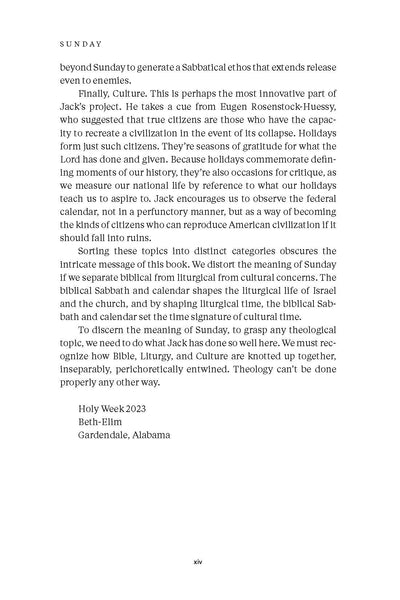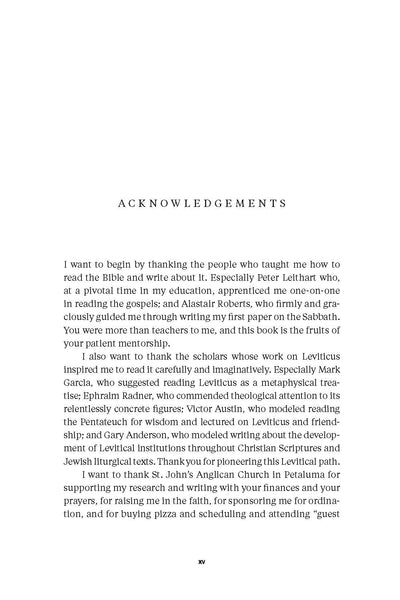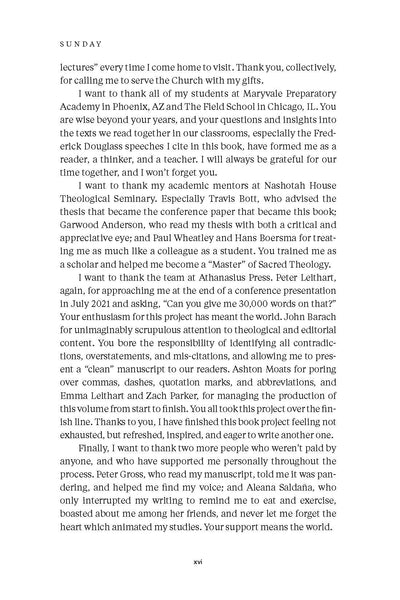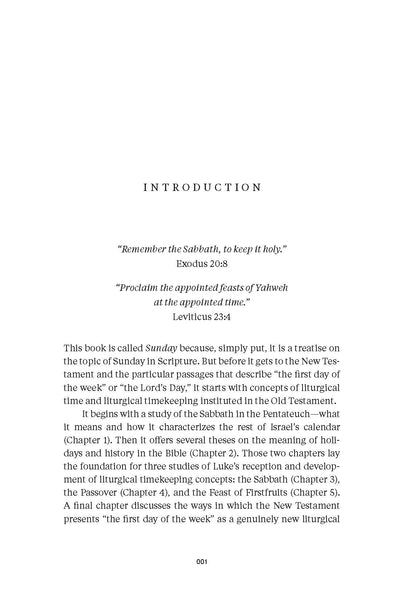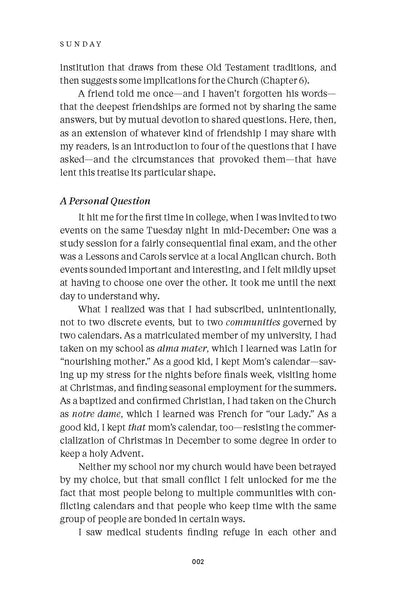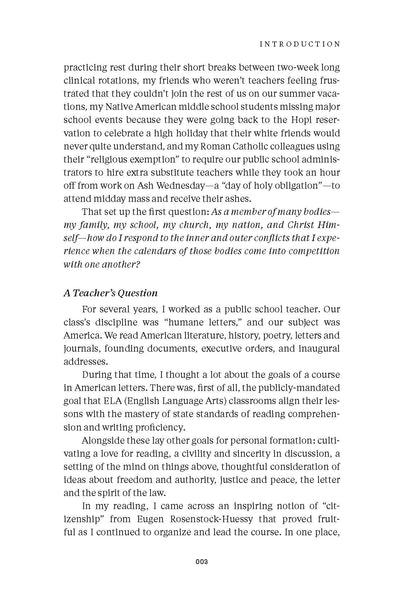Sunday: Keeping Christian Time
Sunday, the first day of the week, is a new liturgical institution that draws on the Old Testament liturgical traditions of the Sabbath, Passover, and the Feast of Firstfruits.
What does Sunday mean? That's the question which Jack Franicevich answers in this new addition to the Theopolis Explorations series. In Sunday: Keeping Christian Time, Franicevich studies the meaning of history and holidays and timekeeping in Scripture to stress the gift of rest embodied in the Lord's Day, considering not only the Old Testament feasts but the way in which Luke frame the story of the new covenant.
ABOUT THE AUTHOR
Rev. Jack Franicevich teaches writing at Valparaiso University and serves as Curate at Valparaiso Anglican (ACNA). He has an STM from Nashotah House and is a Perpetual Member of Biola University's Torrey Honors College. Jack grew up in the lively liturgical life of Roman Catholic and Anglican churches. At a critical moment in his life, during the Eucharistic rite, Jack encountered Jesus in a reading from the Old Testament. Since then, Jack has been keenly interested in the ways in which the Scriptures configure the liturgical life. He practices what is variously called "figural," "canonical," or "symbolic" exegesis of lectionary texts at jackfranicevich.substack.com.
REVIEW QUOTES
“The Christian Sunday is the culmination of the Scriptures’ Sevenly Calendar. This observation makes up the well-argued core of Jack Franicevich’s typological approach to Sunday observance. Far more than a New Testament command to abstain from kinetic activity, the Sunday turns out to be a multifaceted version of Sabbath, Passover, and Firstfruits—all wrapped into one. Sunday is a biblical theological study in the best sense of the term, paying careful attention to the biblical text while at the same time being deeply concerned with the worshipful lives of contemporary Christians. Writing in crystal-clear, sparkling idiom, Franicevich challenges us to reject Pharaoh and all his host, so that instead we may entrust ourselves to the God who sets us free.”
Hans Boersma, Saint Benedict Servants of Christ Chair in Ascetical Theology, Nashotah House Theological Seminary
“Creative, bold, pastorally rich: Franicevich delivers a wonderful reflection on the Christian’s “festal” identity. With a keen and expansive Scriptural reach, he outlines a humble appropriation of Israel’s Sabbath, Passover and the feast of the First Fruits (Shavuot or Weeks) into the Christian’s Sunday Eucharist, showing how this can serve as center of our reception of Jesus’ transformative offering of His own patrimony. This work of exegesis, imaginative exploration, and passionate moral encouragement is a gift to pastors, ministers and all faithful followers of Christ.”
Ephraim Radner, Professor of Historical Theology, Wycliffe College, University of Toronto
“Time is the liturgically ordered cadence and rhythm which structures our experience of the real world. It belongs to the creative and providential works of God and derives its form and contours from the form of the Son Himself. He is Lord of time and wisely, lovingly exercises that Lordship by shaping His people through and in terms of time. However—though this may sound provocative—time may also be the arena of His Lordship against which even His own people most frequently rebel. With characteristic generosity paired with relentless pursuit of the real world of Holy Scripture, Jack Franicevich draws us into the colorful and rich world of Luke’s Levitical Sabbath theology. Jack’s commendation of the Sabbath as neither a moral, ceremonial, nor judicial law as such but as the most conspicuous feature in the biblical and Christian metaphysic of time provokes truly edifying—and potentially revolutionary—self-examination regarding how time is providentially purposed to form, free, and fill us. Refreshingly, Jack’s own voice is heard throughout this study, and for those who know him this only deepens the delight this book is. His mature reflections on the Lord’s ordering of His people through time arises from his own experience of the Lord’s grace to him in this area. This, then, is no mere apologia but an invitation to a blessing Jack has himself come to know and continues to learn. I would like to join him in his invitation. I fully expect you to do the same upon reading this lively little book.”
Mark A. Garcia, President; Fellow in Scripture & Theology, Greystone Theological Institute
“After exploring the liturgical stories behind the Old Testament Sabbath in my own work, I was thrilled to read Jack’s book on the liturgical storytelling behind the New Testament Lord’s Day! And what a timely book this is! In a society filled with stress and tension, Sunday calls us to Christ’s gift of rest. Written with both pastoral care and theological care- fulness, this book explores the beauty of the Sabbath principle through- out Scripture—particularly as it emerges in the New Testament church. And more importantly, this book helps us envision how this practice can reframe our own hectic lives within a liturgy of rest, today.”
Michael Lefebvre, Presbyterian Minister; Fellow, The Center for Pastor Theologians






















